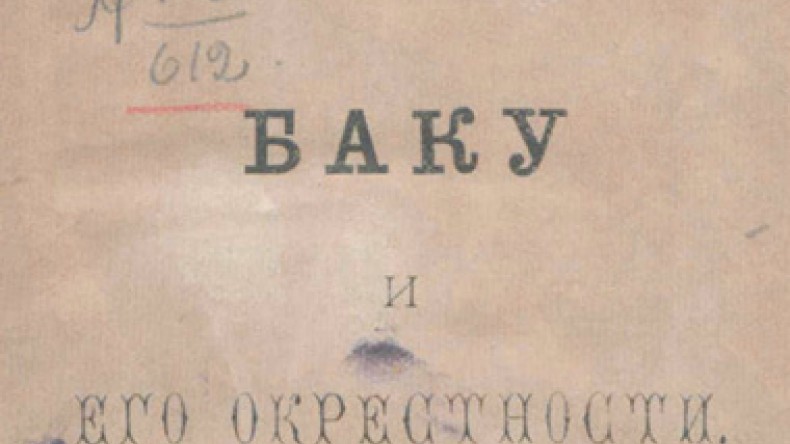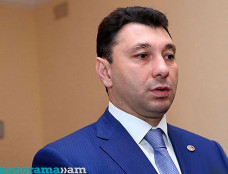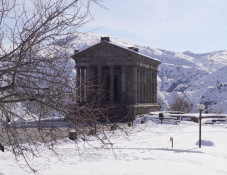
Russian Empire reference book: Baku Governorate has less historical monuments than Erivan
The “Appendix N4 to the old-timer’s reference book ‘The Caucasus’” titled “Baku and its surroundings,” was published in Tbilisi in 1891 and was “mainly of guidebook-nature.” It relates the history of the city Baku and Baku Governorate.
According to the authors, the historical name of Baku Governorate was Albania, and was renamed to Shirvan after Persia captured it in the 6th century BC.
“It is difficult to say who the Albanians were. Only some historical references give base to assume that they could be the highlanders of modern Dagestan, who lived in the areas adjacent to modern Baku Governorate,” according to the authors. As for the indigenous population of the area, the authors write that “the Albanians, Iberians (Georgians) and the neighboring Armenians inhabited the whole Transcaucasia by then.”
Further, the authors write about the history of the seizure of the region by the more powerful states in the neighborhood, as well as by the nomadic tribes, including Khazars, Arabs, Mongols, Tatars and Turks.
Before Shirvan’s joining to the Russian Empire in 1820, the area was a theater of Turkish-Persian and Sunni-Shia wars, going under the control of this or that Muslim power. During the whole period, Shirvan was nothing more than a province, khanate or several small khanates independent from each other, whose rulers were appointed and changed upon the neighboring states’ will.
“As the city of Baku regards, some sources attribute its origin to the 6th century AD, while others indicate to the 10th century. The Mongols’ advent in the 13th century and Khalilullah’s reign contributed to the city’s decoration with various beautiful structures whose remains have been preserved to this day. Generally, Baku did not exist independently, and had some significance as one of the main cities of Shirvan Khanate,” the author writes.
The description of the historical and architectural look of the city and the Governorate is of special interest. “…today, there are significantly less ancient monuments (fortresses, temples, etc.) in Baku Governorate than in the other parts of Transcaucasia, for instance, Erivan, Kutaisi and Tiflis Governorates,” the authors point.
Related:
19th century scientific edition of Russian Empire compiled historical data about ancient Erivan
Scientific edition of Russian Empire: Nakhijevan was prominent Armenian city founded in C16 BC
Scientific edition of Russian Empire about Muslim Tatars’ untidy life in modern Azerbaijan territory
Scientific edition of Russian Empire: For 40 centuries no nation justified Armenians’ trust
Scientific edition of Russian Empire: Armenian witnesses about Erivan Fortress capture
Newsfeed
Videos






























